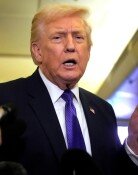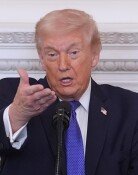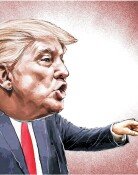U.S., No Extra Pressure on PSI: Having Said it All
U.S., No Extra Pressure on PSI: Having Said it All
Posted November. 08, 2006 03:01,
It was reported that at the non-proliferation consultations on arms control and weapons of mass destruction (WMD) between South Korea and the U.S. held on November 7, the expansion of South Koreas participation in PSI for WMD, which had been expected to be the most important issue on the agenda, was not discussed.
It was said that the U.S. decided not to pressure the South Korean government until different opinions are fine-tuned, considering how this issue has been reduced to a political one with a stark difference of pros and cons within the Korean political circle.
U.S. Under Secretary of State for Arms Control and International Security Robert Joseph reportedly did not strongly request Koreas expanded participation in the PSI efforts because of having said all he could.
This is because last month when U.S. Secretary of State Condoleezza Rice visited Korea and attended the South Korea-U.S. foreign ministerial talks, Under Secretary Robert Joseph, who accompanied her, explained about the legitimacy of Koreas expanded participation in PSI for many hours.
Even when he heard of the South Korean publics opinions opposing the idea, Mr. Joseph reportedly stuck to his logic consistently. Some government officials gave a response on his remarks, saying, It was like talking to a wall.
The government officials said after the consultations, We explained to the U.S. about detailed points and stipulations in the inter-Korean maritime agreement.
According to the agreement, the emphasis was on the point that even if a North Korean ship moving about within the confined routes is searched, the same effects as when the PSI is effective will be realized. It is interpreted to mean that since there is no problem in applying the stipulations in the inter-Korean maritime agreement instead of PSI within territorial waters, even after South Korea officially participates in the PSI, the U.S. should hopefully understand the uniqueness of the situation.
South Korea did not officially announce its measures on expanded participation in PSI to the U.S. not only because of unfinished fine-tuning of various opinions within the political circle and the government but also to show off itself to the U.S. to a certain degree, according to some analyses.
The bottom line: only when South Korea writes a report on imposing sanctions on the North to submit to the U.N. Security Council by November 13, including the detailed points of the inter-Korean maritime agreement and strict applications of this to North Korean ships and additionally makes an official remark on participating in PSI at an appropriate time, will the U.S. and the internationally community understand the South Korean governments willingness to impose sanctions on the North.
At the consultation with U.S. Under Secretary of State for Political Affairs Nicholas Burns, who visited South Korea along with Under Secretary Robert Joseph, measures were mostly discussed to force North Korea stick to the six-party talks, while continuously implementing sanctions on the North according to the U.N Security Council resolution even when the six-party talks resume to address the Norths nuclear issues.
Following the visits of the two under secretaries, Robert Kimmitt, Deputy Secretary of the Department of the Treasury of the U.S., is scheduled to visit Korea from November 8 to 9. He will meet with South Korean Deputy Foreign Minister Chun Young-woo and explain about the status of the U.S. Treasurys investigation on the North Korean accounts that have been frozen in Macaos Banco Delta Asia (BDA) Bank, and discuss prospective measures on it.
gun43@donga.com weappon@donga.com







